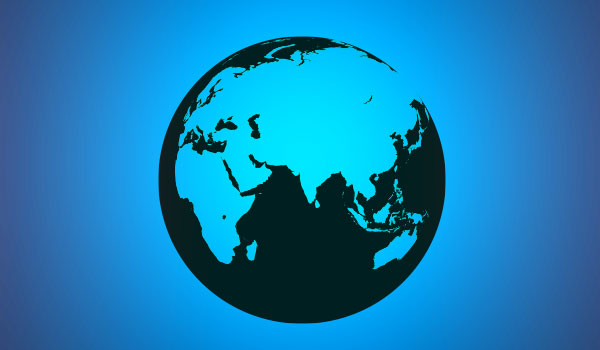Defining a New Normal
C-Suite Insight on Adapting in a World of Constant Change



MODERATED BY

JOSH CHAN
SENIOR RESEARCH ASSOCIATEBAIRD

LUKE JUNK
SENIOR RESEARCH ASSOCIATEBAIRD
PANELISTS
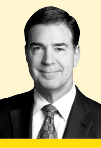
JOHN ENGEL
CHAIRMAN, PRESIDENT AND CEOWESCO INTERNATIONAL
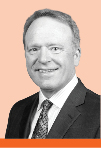
DAN FLORNESS
PRESIDENT AND CEOFASTENAL
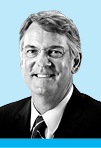
D. CHRISTIAN KOCH
PRESIDENT AND CEOCARLISLE

VERNON NAGEL
CHAIRMAN AND CEOACUITY BRANDS
Baird sat down with a panel of global industrial company executives to discuss the tremendous changes facing businesses today – geopolitical, generational, economic – all of which will require leadership to answer complex questions with no simple answers.
As we enter 2020, companies are facing an environment where uncertainty is arguably the only certainty. How will looming market turbulence, developing political situations and the rise of the millennial generation alter the way companies think and act in the years ahead? This panel discussion explores how businesses are adapting to change and defining a new normal.
HOW IS YOUR BUSINESS ADAPTING TO PLANNING IN A WORLD WHERE UNCERTAINTY IS BECOMING THE NORM?
DAN FLORNESS
When there's uncertainty, we all have to put energy into being resilient in what we do in our business.
We believe it boils down to six things. The first is identifying our business's long-term priorities. Ideally, our priorities will center on our goals. The second step is to identify the activities that directly support these long-term priorities and keep doing them. The third step is to identify the activities that are really important (and are necessary). Pull back a bit. Step four is to identify and stop doing activities that don't necessarily support your long-term priorities. The fifth step is communication. It's important to tell stories within your organization about how you've navigated uncertainty in the past and persisted through good economies and weak economies. Step six is to repeat step five. You communicate again and again. It helps to calm anxiety and create normalcy.
CHRIS KOCH
At Carlisle, we believe change and uncertainty are constants. To confront and address change and uncertainty successfully, we rely on a strong strategic plan, deep-seated core values, a culture that reflects an entrepreneurial mindset and a continuous improvement philosophy. Our Vision 2025, which we introduced in early 2018, is our "north star" and underscores our belief that the best course of action is to be committed to long-term plans and goals, develop and retain the talent and culture in our organization to meet these goals, and maintain the financial strength to provide the flexibility to execute.
JOHN ENGEL
We remain focused on what we can control, which is our strategy, our operating plans and our execution. Taking into account the increased uncertainty in our environment, we are making investments for a future that demands both data-driven and traditional distribution-related solutions.
VERN NAGEL
It is not just uncertainty, but also the pace of change, mostly involving new technologies, that is also causing companies to re-examine their planning process. What we see happening is that organizations have to re-examine some of their priorities and key assumptions around longer-term strategy on a more frequent basis.
It doesn't mean you don't have goals, of course, but you're continuously looking at how changing market dynamics such as shifts in technology might influence some of your assumptions. A good example is 5G, which is becoming a reality. How will it impact businesses in terms of what they're trying to do and why they're doing it? We keep a more focused eye on different trends in tech.
It is not just uncertainty, but also the pace of change, mostly involving new technologies that is also causing companies to re-examine their planning process.
WHAT OPPORTUNITIES AND CHALLENGES DOES UNCERTAINTY CREATE FOR YOUR ORGANIZATION?
JOHN ENGEL
During times of increased uncertainty, we maintain our relentless focus on super-serving our customers. Customers are facing an increasing set of challenges in their businesses. We know that inflation, tariff-related price increases ad skilled labor shortages are issues that are impacting our customers. Our opportunity is to provide the products, services and complete supply chain solutions that drive productivity and efficiency and create value for our customers.
CHRIS KOCH
Our foundation and philosophies, coupled with our strong balance sheet and our Vision 2025, allow us to be opportunistic in M&A and capital investment when others retreat in uncertain times. Over the past several years, we have established and continue to invest in new growth platforms, including CCM's polyurethane and architectural metal businesses, and medical technologies within CIT, despite facing today's uncertainties.
Our customers are feeling the same angst and uncertainty we're feeling. The opportunity is to forge a stronger relationship with your customer.

VERN NAGEL
Today, you have both technology uncertainty and political uncertainty. There is no doubt in my mind that that uncertainty has really slowed down how businesses think about longer-term capital investments until they get more clarity.
At Acuity, we're investing in really talented people who understand key technologies and how they're evolving. When it comes to the political uncertainty, it's a little bit of a new ballgame. It's caused us to become more cautious about how we might consolidate certain portions of our manufacturing and engineering capabilities because we're not sure how NAFTA will play out.
DAN FLORNESS
Our customers are feeling the same angst and uncertainty we're feeling. The opportunity is to forge a stronger relationship with the customer. Part of this involves creating a stronger relationship with the supplier because we all work together to service the customer.
We are a supply chain partner with our customer. Their supply chain has become more expensive and more complex because of things like tariffs. It's our job to simplify things, understand our customer's business and provide them with solutions and ideas.
AS OF LATE 2019, THE U.S. ECONOMIC CYCLE WAS THE LONGEST BULL MARKET ON RECORD. AS AN ORGANIZATION, HOW DO YOU BALANCE CONTINUED GROWTH IN THE NEAR TERM WITH AN EVENTUAL TURN IN THE CYCLE?
VERN NAGEL
We've worked hard over the last decade to diversify our business model to include not only the new construction cycle, but to also participate in the renovation cycle, whether it's outdoor street and roadway or indoors migrating from older fluorescent or HID technology to LED. We took advantage of the technology shift to diversify our product portfolio and processes to pursue growth opportunities in both the installed base as well as new construction.
CHRIS KOCH
The current bull market has provided a good backdrop for Carlisle's traditional businesses, especially commercial roofing, aerospace and automotive production, and our significant capital investments in plant, people and R&D have allowed us to gain share, gain price and drive significant earnings growth. We fully intend to continue to make those investments to sustain our business leadership going forward. As we look toward a potential cycle turn, our capital investments across segments in emerging, new platforms sets us up particularly well to weather a turn in the overall economic cycle.
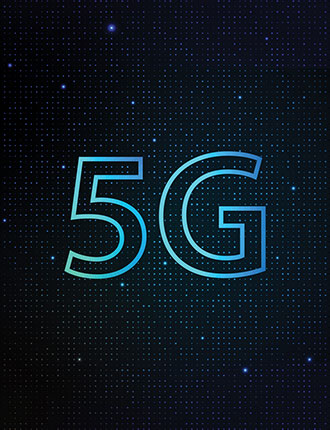
JOHN ENGEL
While the bull market has lasted for over 10 years, we also weathered an industrial recession in 2015-16 led by declines in oil and gas. We met the challenges of the industrial recession by reducing costs, consolidating branches and driving efficiencies in our organization. At the same time, we reinvested some of the savings to diversify our business to focus on growth areas such as data centers, the broadband build-out, and LED renovation and retrofit. We also invested in our go-to-market capabilities with improved digital and e-commerce solutions, and we continued to invest in our industry-leading utility team. We're prepared to act based on market conditions while maintaining flexibility in our business.
DAN FLORNESS
Over the last 50 years, we've built a $5 billion business. However, we still have relatively small market share in our market. We keep focusing on investing in growth and investing where we have existing business, branch and onsite operations. If our revenue falls off in the future and we need to pull back some expenses, we'll absolutely pull back expenses – but we still invest to grow.
WHAT ARE THE IMPLICATIONS OF THE CURRENT SHIFTING POLITICAL LANDSCAPE FOR YOUR BUSINESS? AS IT RELATES TO TRADE AND FLOW OF GOODS + SERVICES, HOW WOULD A LESS OPEN GLOBAL MARKET IMPACT YOUR BUSINESS?
JOHN ENGEL
We're primarily a North American business, but we service many customers that have global operations and partner with our global supplier base. The U.S. and Canada markets represent approximately 95% of our overall business, and we generally are buying products manufactured locally in the U.S. for our U.S. business and locally in Canada for our Canadian business.
Digital changes are accelerating in our industry, and customer expectations are increasing regarding products, services and data.
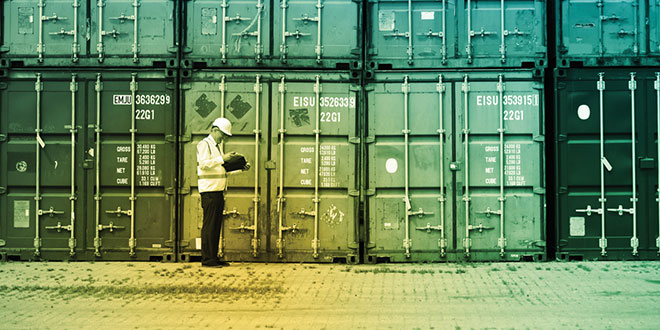
Our direct purchases from China represent a low single digit percentage of our purchases. A more restrictive global market would likely challenge our manufacturing partners, some of whom are much more exposed to China sourcing for their operations and supply chains, and therefore we would be exposed to higher costs from those manufacturers.
VERN NAGEL
Approximately 97% of Acquity's revenues today are focused on the North American market. Certain components that we source from around the globe are coming from broader Asia, not necessarily just China. Right now, our markets are wide open to foreign competition for lighting products, our primary source of revenues. But if our markets remain open while certain other foreign markets remain closed to U.S. products, this dynamic will not be favorable in the long run. So we'll see how that plays out. This paradigm serves to create even greater uncertainty.
CHRIS KOCH
In the current environment, Carlisle has benefited from having a relatively high percentage of business based in the United States. Because of this, we have been somewhat insulated from turbulence in the global marketplace as demand here in the non-residential roofing markets and commercial aerospace markets provides a relatively stable foundation.
DAN FLORNESS
Our first thought goes to our customer. Depending on our customer's business, what they do and who their end market is can change things dramatically. Does the uncertainty also affect supply chain? Absolutely. Take fasteners as an example. Most non-construction fasteners in the U.S. come out of China. More than half of the steel produced on the planet is produced in China. Fasteners are made out of steel. There's a dramatic cost advantage in that market. The entire North American economy — actually, the entire global economy — is getting most of its fasteners out of China. We're all in the same boat. It's a product issue, and it's more acute for certain products than others.
WHAT ARE ONE OR TWO WAYS THE COMPANY MIGHT DE DIFFERENT 5-10 YEARS FROM NOW BECAUSE OF THE IMPACT(S) OF THE GENERATIONAL SHIFT TO MILLENNIALS?
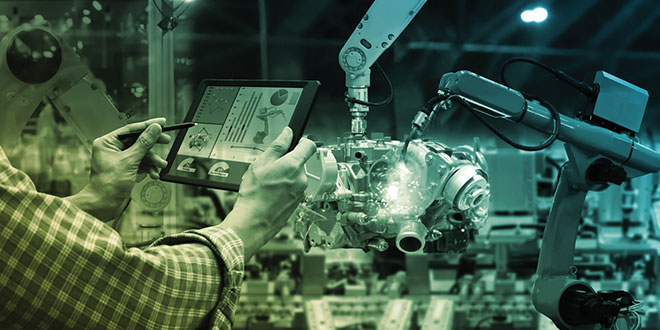
CHRIS KOCH
We are aware that we are in a new age of technology, and as the tech boom spreads globally, we remain focused on enhancing equipment, systems and processes to not only increase speed and efficiency, but also to create working environments more attuned to the changing needs of a tech-savvy generation. We anticipate more automated systems in our facilities and more technology overlay in our applications, which translates to a different set of skills needed in the manufacture, installation and use of our products.
JOHN ENGEL
The biggest change will be how we leverage technology with our stakeholders. Over the next 5-10 years, we expect our customers' will demand that their supply chain partners provide solutions via digital means. We're focused on being a leader in driving digital solutions in our B2B value chain. I also believe that how we work, be it in an office or branch, will rapidly evolve over the next decade.
VERN NAGEL
Technology is enabling the next wave of people coming into the workforce to have incredible skills. Technology is second nature to folks in the next generation. That knowledge will allow them to become subject matter experts much more rapidly. Companies will be able to leverage that knowledge base to more rapidly transform their businesses.
DAN FLORNESS
We'll still need the infrastructure of the global economy to support our business. What we provide as a supply chain partner will actually become more important because we've built the expertise – through people, technology and the infrastructure of our organization – to be decidedly superior to our competitors in our ability to combine fulfillment with ideas for alternatives.
HOW IS THIS GENERATIONAL SHIFT CHANGING CUSTOMERS' EXPECTATIONS OF YOUR COMPANY? HOW CAN (OR WILL) YOUR COMPANY ENHANCE ITS COMPETITIVE POSITIONING AMID THIS SHIFT?
CHRIS KOCH
We do not believe this generational shift will fundamentally change our customers' expectations of Carlisle delivering innovative, highly engineered, ROI-based solutions. However, one of the biggest challenges for our customers is accessing and training skilled labor. As such, our customers' needs for ease of use is ever increasing.
JOHN ENGEL
Digital changes are accelerating in our industry, and customer expectations are increasing regarding products, services and data. We offer our customers numerous ways to digitally interface and interact with WESCO, and we are making additional investments to ensure that we remain a leader in the distribution marketplace of tomorrow.
We expect environmental, social, governance (ESG) and sustainability matters to continue to grow in relevance and importance with our investors.
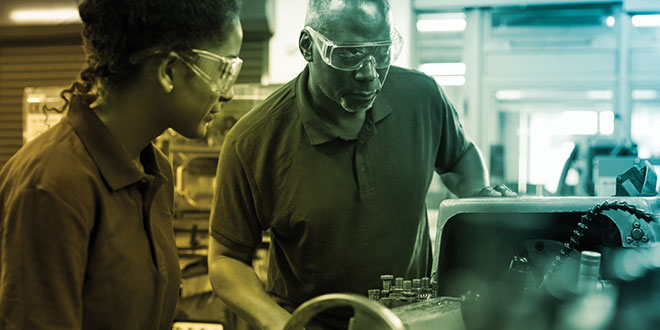
VERN NAGEL
There are industries – potentially lighting specifically, and the electrical industry generally – that have been slow to diversify their customer-facing organizations to be more reflective of societal makeup overall. More diversity will bring greater opportunities for companies like Acuity that drive greater adoption.
DAN FLORNESS
For us, we are focused on developing our skills to be the best supply chain partner, not only as a product expert, knowing where to source options and having resources in your network, but also our ability to get a product to our customer from an e-commerce and traditional logistics standpoint. Customers need it when they need it.
THIS GENERATIONAL SHIFT IS ALSO DRIVING AWARENESS OF AND A DEMAND FOR SUSTAINABILITY INITIATIVES. HOW DOES YOUR COMPANY CONSIDER SUSTAINABILITY IN YOUR BUSINESS PLANNING?
CHRIS KOCH
We are committed to driving measurable strategies that will contribute to clear sustainability and diversity and inclusion across the enterprise. We do this not because it's a trendy subject or because investors will undoubtedly place a greater emphasis on it over time, but because we believe these behaviors are necessary and drive significant value to our employees, communities and shareholders.
Sustainability very much overlaps with our continuous improvement philosophy. Within that, we seek to optimize our manufacturing footprint, reduce waste across Carlisle, increase resource productivity and optimize material usage.
JOHN ENGEL
We expect environment, social, governance (ESG) and sustainability matters to continue to grow in relevance and importance with our investors. As such, we have enhanced our ESG disclosures and conducted investor outreach with shareholders to help us understand their related priorities. And because we're not a manufacturer, our sustainability goals include delivering sustainable products and services to our customers to help them meet their goals. This is a key differentiator for us and is how we will maximize our positive impact on the environment.
VERN NAGEL
For sure, investors are paying more attention to ESG matters. Acquity is a solution for the "E" side of many companies' businesses. Internally, we are formalizing our processes to demonstrate our ESG efforts to our investors as well as our customers. Many of our customers are cities, states and federal government that have ESG requirements as part of their contracts as part of their sustainability efforts.
DAN FLORNESS
Whenever given the opportunity to speak to college students, I share this anecdote. I grew up in a rural setting, on a farm in Wisconsin. Our family didn't just farm the land and raise animals – we took care of booth. I was drawn to Fastenal because the company operates the same way. We care about how people are treated. We're frugal as an organization, and we talk about it often, both internally and externally. Frugality is about caring for the environment and sustainability. Frugality isn't just about not wasting.
We talk about this with potential Fastenal employees. Fortunately, we had a founder who was very frugal, and it was not in his DNA to waste. He created an organization that operated the same way. So, being frugal comes naturally to us, which means we don't waste – and that's sustainable. We've been acting in a sustainable fashion for years.
HOW IS YOUR COMPANY ADAPTING YOUR APPROACH TO ATTRACTING, TRAINING AND RETAINING MILLENNIALS? WHAT ARE YOUR BIGGEST CHALLENGES AND OPPORTUNITIES?
CHRIS KOCH
There is no question that the current labor markets are tight, and there is a premium on attracting and retaining employees of all generations. We believe that millennials, like previous generations, are looking for opportunities to develop themselves and to have a meaningful impact on both the company they work for and their communities.
In the past few years at all of our business, we've improved our employee engagement programs, from developing social media content to enhancing our leadership development programs. We have active partnerships with universities and trade schools, both within and outside the U.S., in an effort to attract millennials to an industrial/manufacturing environment. We've also significantly increased our programs around diversity and inclusion and corporate social responsibility, in part as a response to the voice of millennials.
Millennials are interested in companies that… are focused on using technologies to change the environment that their customers operate in…
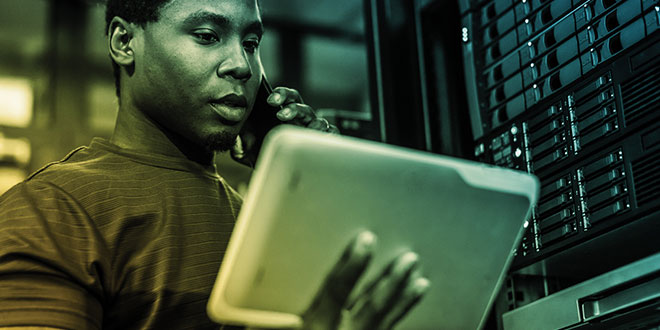
JOHN ENGEL
Winning the war for talent and being the employer of choice in our industry is our continuous goal. As a result, we have a long list of initiatives targeting this goal as part of our enterprise strategy. We conduct an employee engagement survey every two years to get a pulse on improving our organization. We hire college interns to join WESCO for the summer with a view toward full-time hiring upon graduation, and we have a year-long program for recent college graduates to learn our business. We are also very active in recruiting employees with military backgrounds, as we have found the training and job skills they already possess help them to quickly contribute upon joining our WESCO team.
VERN NAGEL
Our mission statement reflects our core belief that engaged and empowered associates will meaningfully benefit all key stakeholders. Millennials are interested in companies that put the associate at the center of the value creation opportunity and are focused on using technology to change the environment that their customers operate in and how they use resources, either physical space or all resources, to make a difference.
When potential employees think about Acquity, they no longer think about us as a lighting company. They see us a technology company. Electronics and software are now core competencies of our business, whereas 25 years ago we would've said our core competencies were optical design, supply chain and access to market.
DAN FLORNESS
One thing I've seen in both my kids and their friends, as well as our own employees, is how much more informed people are about their options than they were 10, 20, 30 years ago. They're doing research on organizations they may want to be part of and using tools that simply didn't exist decades ago. They are being much more strategic with their careers and taking more of a future view. That's a great way to approach what's next.
This generation is willing to be challenged, too. We have to listen to what they're looking for and what challenges they're hungry for, then provide that challenge. Challenges should go both ways.

This generation is willing to be challenged, too. We have to listen to what they're looking for and what challenges they're hungry for…






